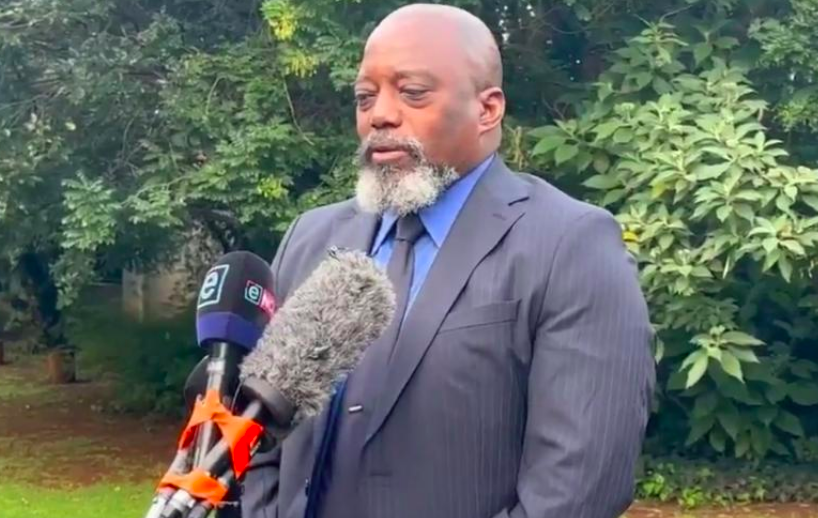Joseph Kabila the former President of Democratic Republic of Congo has rejected accusations linking him to the AFC/M23 rebels saying, the allegations are “unfounded”.
He was speaking to media on Tuesday shortly after holding a meeting in Johannesburg with Thabo Mbeki the former President of South Africa.
The former Congolese leader demanded his critics to provide proof of links to the rebels that now control both South and North Kivu provinces.
“These accusations are simply unfounded. The next time you see him, ask him to provide you with evidence to support his claims,” .
The former Congolese head of state also discussed his recent meeting with members of the opposition and the Catholic Church, stressing the need for an endogenous approach to resolving the crisis shaking the DRC.
“Everyone talks about the Congo, except the Congolese. If you go to Nairobi, you see that people talk about the Congo. If you go to South Africa, people talk about the Congo, but the Congolese themselves seem to be ignored,” he denounced.
“So the objective of the meeting was to bring everyone together—opposition, civil society, and religious leaders—to analyze the role of each actor—opposition, civil society, government—in the situation in the Congo in order to find a solution as Congolese.”
A critical look at the evolution of the DRC
Having been away from the political scene since leaving power in January 2019, Kabila recalled that he had voluntarily withdrawn, convinced that he had consolidated the country’s institutional stability.
“At my last meeting with SADC as head of state in 2018, I told the leaders at the time that I was happy to be leaving and that Congo was no longer the weak link in the region,” he recalled. “Six years later, we are almost back where we started.”
Faced with the persistent insecurity in the east of the country, Kabila rejected any responsibility and called for collective introspection.
“The problem is much deeper than we think. We must analyze the internal dynamics of the DRC and put aside this blame game that consists of thinking that everything that happens is someone else’s fault. At some point, we must ask ourselves if we are the problem, if it is our problem, and how, as Congolese, we can solve this problem,” he concluded.
